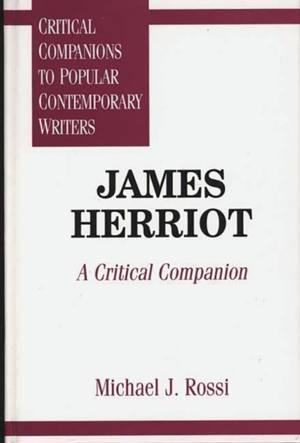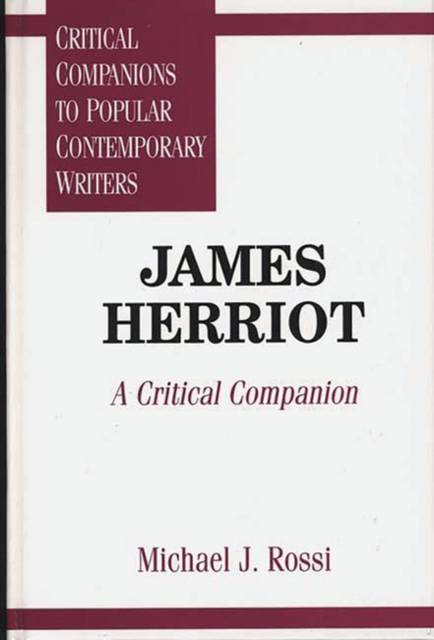
- Retrait gratuit dans votre magasin Club
- 7.000.000 titres dans notre catalogue
- Payer en toute sécurité
- Toujours un magasin près de chez vous
- Retrait gratuit dans votre magasin Club
- 7.000.0000 titres dans notre catalogue
- Payer en toute sécurité
- Toujours un magasin près de chez vous
Description
This study examines James Herriot's five major books as carefully crafted volumes of autobiography based on the building block of the short story. In each of these works Herriot explores the fundamental choice of values underlying a happy and successful life. In his vision the bonds of affection and mutual dependence between all creatures, human and animal, form an enduring theme that lies at the heart of the choices he makes in his personal and professional life. This study will help the reader to understand the relationship between Herriot's stories and each book as a whole and to appreciate Herriot's work in the context of twentieth-century anxieties about identity and meaning.
Following a biographical chapter that describes the relationship between Herriot's life and literary work, Rossi discusses the genre of autobiography, the relationship between truth and fiction in modern autobiography, and Herriot's use of the genre. A separate chapter is then devoted to each of Herriot's works in turn: All Creatures Great and Small, All Things Bright and Beautiful, All Things Wise and Wonderful, The Lord God Made Them All, and ^Every Living Thing. The discussion of each work includes sections on plot development and narrative structure, character development, thematic issues, and alternative critical approaches that may be fruitfully applied to the book. Helpful appendices contain identifications of minor characters in the works. A complete bibliography of all of James Herriot's works, critical sources, and a listing of reviews of all of his works completes the volume. Because of the popularity of Herriot's work among adults and young adults this companion will be a key purchase for school and public libraries.Spécifications
Parties prenantes
- Auteur(s) :
- Editeur:
Contenu
- Nombre de pages :
- 240
- Langue:
- Anglais
- Collection :
Caractéristiques
- EAN:
- 9780313294495
- Date de parution :
- 28-01-97
- Format:
- Livre relié
- Format numérique:
- Genaaid
- Dimensions :
- 162 mm x 242 mm
- Poids :
- 517 g

Les avis
Nous publions uniquement les avis qui respectent les conditions requises. Consultez nos conditions pour les avis.






